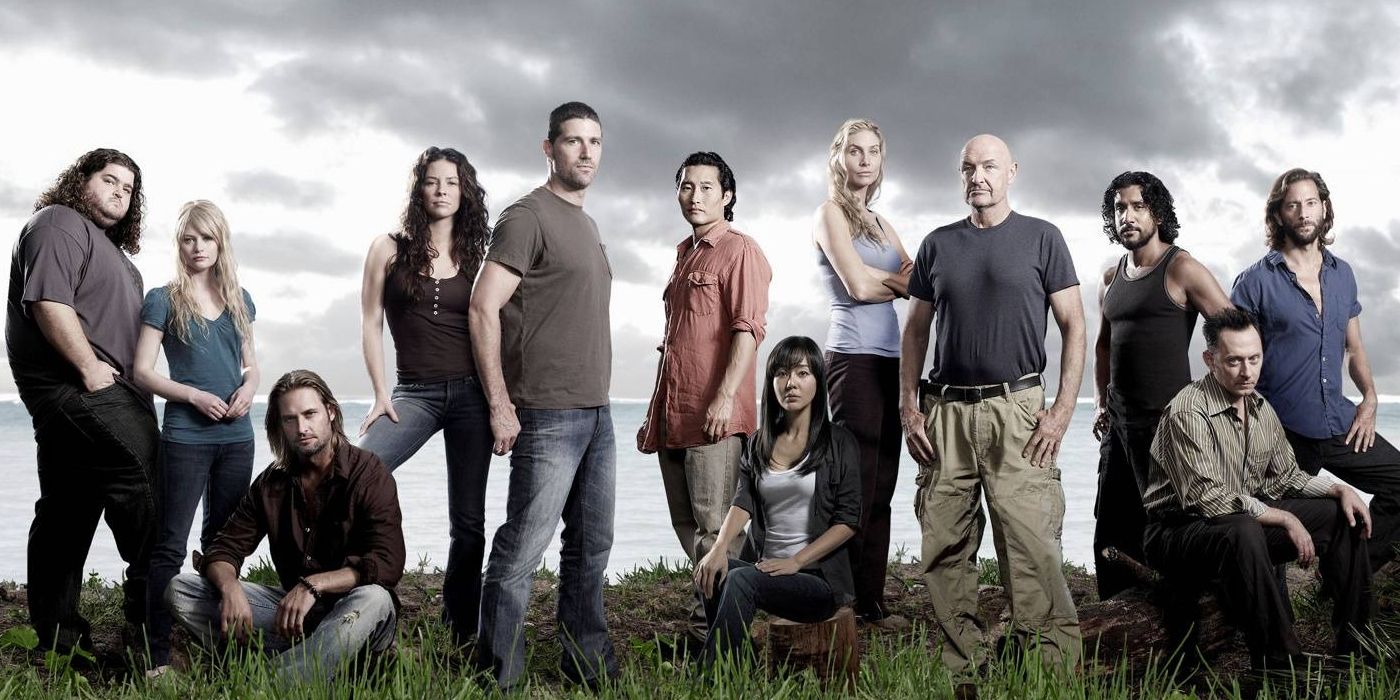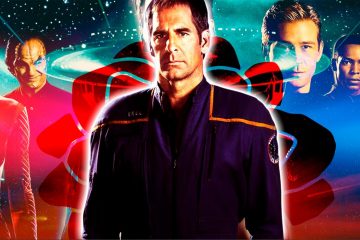Lost is the iconic and groundbreaking TV series that debuted on ABC in 2004 and ran for a total of six seasons, quickly becoming a cultural phenomenon. The series starts with a seemingly straightforward premise: a group of airplane crash survivors find themselves stranded on a mysterious island. However, as the show progresses, the characters confront numerous challenges, including supernatural and scientific mysteries that they need to contend with. Amidst its genre-bending and ahead-of-its-time narrative structure, the series also incorporates profound philosophical themes, such as existentialism, free will, and the search for meaning.Created by J.J. Abrams, Damon Lindelof, and Jeffrey Lieber, Lost remains a landmark in television history, renowned for its ambition and the enduring impact it had on the medium. It garnered critical acclaim for its innovative storytelling, complex characters, and thematic depth, earning it numerous awards, including Golden Globes and Primetime Emmy Awards. These elements also fostered a dedicated fanbase, where viewers engaged in extensive discussions and theorized about the show’s mysteries, fundamentally altering how entertainment media is consumed. However, the series also boasts intellectual richness in its philosophical themes, seamlessly woven into the narrative through the use of flashbacks and interactions with the island itself. The island and its inhabitants present numerous challenges that compel the characters to question their purpose and meaning of existence, which they have to wrestle with, all while trying to survive.This moment is when audiences first get to see Locke in a wheelchair. He then angrily expresses how it is his destiny to go on the trip, a belief which he transfers onto the island. This episode highlights how, before the crash, Locke was a man with a history of struggle and a sense of purposelessness. His time on the island has become a transformative experience, where he believes he has found his true calling, echoing existentialist ideas of individuals seeking meaning and purpose. In FX’s What We Do in the Shadows, Guillermo also grapples with such concepts regarding becoming a vampire, contemplating whether he will find purpose or deep meaning in an extended life. Back to Lost, Locke also takes on a symbolic role as a believer in the island’s calling, where his unwavering faith in the island’s calling and significance contrasts with the other characters who approach the island’s mysteries with a sense of skepticism. As a result, Locke defines his destiny, which is also tied to existential themes of freedom and responsibility, choosing to place significance on the island and his connection to it.
Lost is the iconic and groundbreaking TV series that debuted on ABC in 2004 and ran for a total of six seasons, quickly becoming a cultural phenomenon. The series starts with a seemingly straightforward premise: a group of airplane crash survivors find themselves stranded on a mysterious island. However, as the show progresses, the characters confront numerous challenges, including supernatural and scientific mysteries that they need to contend with. Amidst its genre-bending and ahead-of-its-time narrative structure, the series also incorporates profound philosophical themes, such as existentialism, free will, and the search for meaning.
Created by J.J. Abrams, Damon Lindelof, and Jeffrey Lieber, Lost remains a landmark in television history, renowned for its ambition and the enduring impact it had on the medium. It garnered critical acclaim for its innovative storytelling, complex characters, and thematic depth, earning it numerous awards, including Golden Globes and Primetime Emmy Awards. These elements also fostered a dedicated fanbase, where viewers engaged in extensive discussions and theorized about the show’s mysteries, fundamentally altering how entertainment media is consumed. However, the series also boasts intellectual richness in its philosophical themes, seamlessly woven into the narrative through the use of flashbacks and interactions with the island itself. The island and its inhabitants present numerous challenges that compel the characters to question their purpose and meaning of existence, which they have to wrestle with, all while trying to survive.
This moment is when audiences first get to see Locke in a wheelchair. He then angrily expresses how it is his destiny to go on the trip, a belief which he transfers onto the island. This episode highlights how, before the crash, Locke was a man with a history of struggle and a sense of purposelessness. His time on the island has become a transformative experience, where he believes he has found his true calling, echoing existentialist ideas of individuals seeking meaning and purpose. In FX’s What We Do in the Shadows, Guillermo also grapples with such concepts regarding becoming a vampire, contemplating whether he will find purpose or deep meaning in an extended life. Back to Lost, Locke also takes on a symbolic role as a believer in the island’s calling, where his unwavering faith in the island’s calling and significance contrasts with the other characters who approach the island’s mysteries with a sense of skepticism. As a result, Locke defines his destiny, which is also tied to existential themes of freedom and responsibility, choosing to place significance on the island and his connection to it.
#Losts #Philosophy #Explains #Storys #Real #Meaning
Note:- (Not all news on the site expresses the point of view of the site, but we transmit this news automatically and translate it through programmatic technology on the site and not from a human editor. The content is auto-generated from a syndicated feed.))



